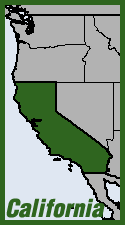 Speaking at the University of Utah's Hinckley Institute of Politics on Feb. 7, US Army Undersecretary Joseph Westphal—the army's second highest ranking civilian official—invoked an "insurgency" mounting in Mexico. His talk focused on the Middle East and South Asia, but in response to a student's question about strategic blind spots in US foreign policy, Westphal said: "One of them in particular for me is Latin America and in particular Mexico. As all of you know, there is a form of insurgency in Mexico with the drug cartels that’s right on our border."
Speaking at the University of Utah's Hinckley Institute of Politics on Feb. 7, US Army Undersecretary Joseph Westphal—the army's second highest ranking civilian official—invoked an "insurgency" mounting in Mexico. His talk focused on the Middle East and South Asia, but in response to a student's question about strategic blind spots in US foreign policy, Westphal said: "One of them in particular for me is Latin America and in particular Mexico. As all of you know, there is a form of insurgency in Mexico with the drug cartels that’s right on our border."

 Canada's Liberal Party announced Feb. 9 that it will oppose
Canada's Liberal Party announced Feb. 9 that it will oppose  Ontario Superior Court Justice Thea Herman ruled Feb. 7 that the
Ontario Superior Court Justice Thea Herman ruled Feb. 7 that the  Oakland City Attorney John Russo has withdrawn his legal counsel from plans to tax and license large-scale cannabis farms, and told the City Council to hire their own attorney.
Oakland City Attorney John Russo has withdrawn his legal counsel from plans to tax and license large-scale cannabis farms, and told the City Council to hire their own attorney. In the past seven months, cannabis dispensaries have sprouted across Washington state, exploiting a loophole in the state's medical marijuana law that neither explicitly allows nor prohibits them. State tax officials estimate at least 120 are open, mostly in the Puget Sound area. Dozens more likely remain underground. Under pressure from all sides to "clear the haze," the Legislature is considering a bill, SB 5073, that would legalize, regulate and tax dispensaries and create the state's first authorized commercial cannabis farms. (
In the past seven months, cannabis dispensaries have sprouted across Washington state, exploiting a loophole in the state's medical marijuana law that neither explicitly allows nor prohibits them. State tax officials estimate at least 120 are open, mostly in the Puget Sound area. Dozens more likely remain underground. Under pressure from all sides to "clear the haze," the Legislature is considering a bill, SB 5073, that would legalize, regulate and tax dispensaries and create the state's first authorized commercial cannabis farms. ( Campesino leaders report a wave of abuses against local indigenous peasants in the Guatemalan department of Alta Verapaz since a "state of siege" was declared there in response to the alleged presence of
Campesino leaders report a wave of abuses against local indigenous peasants in the Guatemalan department of Alta Verapaz since a "state of siege" was declared there in response to the alleged presence of  On Jan. 26, coca growers and their supporters gathered in cities across Bolivia to hold peaceful demonstrations in support of their government's proposed amendment to the 1961 UN Single Convention on Narcotic Drugs. The amendment seeks to decriminalize the traditional practice of coca leaf chewing. Coca growers' federations from the Chapare region gathered in Cochabamba's main plaza to collectively chew coca, distribute information, offer free samples of coca leaves, and show their solidarity with the Bolivian government's
On Jan. 26, coca growers and their supporters gathered in cities across Bolivia to hold peaceful demonstrations in support of their government's proposed amendment to the 1961 UN Single Convention on Narcotic Drugs. The amendment seeks to decriminalize the traditional practice of coca leaf chewing. Coca growers' federations from the Chapare region gathered in Cochabamba's main plaza to collectively chew coca, distribute information, offer free samples of coca leaves, and show their solidarity with the Bolivian government's 






Recent comments
3 weeks 2 days ago
3 weeks 2 days ago
6 weeks 3 days ago
7 weeks 2 days ago
11 weeks 2 days ago
15 weeks 1 day ago
19 weeks 1 day ago
19 weeks 6 days ago
29 weeks 6 days ago
34 weeks 8 hours ago